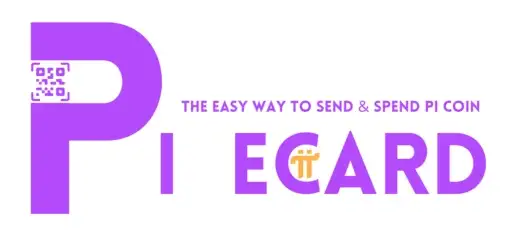@decentapps/piecard v0.2.1

Pi eCard is the easy POS (Point of Sale) system for the Pi Network, enabling in-person vendors and Pioneers to invoice others without the need to type in long public keys. The status of the payment can be seen at any stage by both the vendor and the client for pi network.
Quick Start
Get your API keys
Your API requests are authenticated using API keys. Any request that doesn't include an API key will return an error.
You can get your API keys in your dashboard at any time, visit developers to generate or get your keys.
See an example of how to use our package
const { PieCard } = require('@decentapps/piecard')
// Initialization
const piecard = new PieCard("Client_ID", "Client_Secret", "Access_Token");
// CREATE PAYMENT
const paymentData = {
amount: NUMBER, // amount of service >= 0
memo: STRING, // memo of the transaction
metadata: OBJECT // key-value pairs of metadata
};
piecard
.createPayment(paymentData)
.then((result) => {
console.log("Create payment response : ", result);
})
.catch((err) => {
console.log("Response error : ", err);
});
// GET PAYMENT BY ID
const paymentId = STRING // 63e064aebc26563e677a9ae1
piecard
.getPaymentById(paymentId)
.then((result) => {
console.log("Get payment : ", result);
})
.catch((err) => {
console.log("Get payment error : ", err);
});
// SEND PI FROM APP TO USER (APP-TO-USER TRANSACTION)
const appToUserData = {
amount: NUMBER, // Will be deducted from your wallet, plus the 0.02 Pi fee
recipient: STRING, // Either Pi Username OR Wallet Address
wallet_public_key: STRING, // Your Mainnet wallet address
wallet_secret_key: STRING, // We will never see or store this
memo: STRING, // Optional - this will appear on the blockchain
};
piecard
.makePaymentToUser(appToUserData)
.then((response) => {
console.log("Pi Payment response : ", response);
})
.catch((err) => console.log("Sending pi to user error : ", err));
// GET A SECURE PAYMENT PAYLOAD
const encryptedData = STRING;
piecard
._decryptPayment(encryptedData)
.then((result) => {
console.log("Decrypted Payment response : ", result);
})
.catch((err) => {
console.log("Decrypting Payment error : ", err);
});Installation
This is a Node.js module available through the npm registry.
Before installing, download and install Node.js. Node.js 0.10 or higher is required.
If this is a brand new project, make sure to create a package.json first with
the npm init command.
Installation is done using the
npm install command:
$ npm install @decentapps/piecardFollow our installing guide for more information.
Features
- Low fees on micropayments
- Super-high test coverage
- Pay via usernames
- Pay with scannable QR codes
- Invoice over URLs
- Content negotiation
- Use with or without a Pi eCard balance
- Focus on high performance
- HTTP helpers (redirection, caching, etc)
- Executable for completing transactions quickly
Docs & Community
- Website and Documentation [website repo ---- Documentation]
- #piecard on twitter Chat @piecard
- GitHub Organization for Official Middleware & Modules
- Twitter Group for discussion
- Discord Server for events and discussion
- Contact for support and discussion
Contributing
The PieCard project welcomes all constructive contributions. Contributions take many forms, from code for bug fixes and enhancements, to additions and fixes to documentation, additional tests, trigging incoming pull requests and issues, and more!
See the Contributing Guide for more technical details on contributing.
Security Issues
If you discover a security vulnerability in PieCard, please see Security Policies and Procedures.
Running Tests
To run the test suite, first install the dependencies, then run npm test:
$ npm install
$ npm testPeople
The original author of PieCard is Duniya Naphtali
The current lead maintainers are Oliver Crockett and Duniya Naphtali